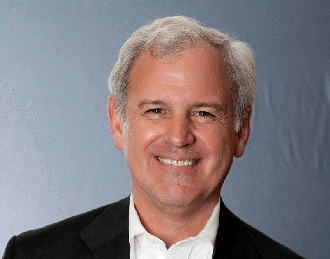By Bill Britt
Alabama Political Reporter
MONTGOMERY—-Former State Senator and gubernatorial candidate Bradley Byrne in a recent op-ed that appeared in the “Birmingham News,” took issue with the coming constitutional amendment that would fund Alabama Medicaid system.
In the piece Byrne writes, “‘…to rob the ATF as a three-year temporary “cure” to Medicaid’s funding problems instead of addressing its long-term structural and management issues is fiscally unsound and—-by once more kicking the can down the road instead of facing the problem honestly—-misses the opportunity to change Medicaid fundamentally and for the better.’”
The Alabama Political Reporter spoke with Mr. Byrne to ask about his ideas to reform Medicaid.
Whether the voters of Alabama adopt this plan to fund Medicaid or not reform has got to come to the Medicaid program.
Byrne says that other states are tackling the problems of Medicaid and that there are models that can be looked into to bring Alabama’s problem under control. He also says that there are people and groups in Alabama that have good ideas on how to fix the broken system.
“One of the first things I have advocated toward Medicaid reform is that we need to come up with a different way of handling malpractice claims against providers in the Medicaid system,” said Byrne.
He says that hospitals, doctors and other providers who take Medicaid are forced to practice, “defensive medicine, to forestall any lawsuits or win if they get one.”
Byrne believes this drives up costs because unnecessary test and procedures are being proscribed because of the fear of litigation.
Byrne says there are suggested remedies in the way of Medicaid-specific tort reform, “Some have advocated going to binding arbitration or going to healthcare claims panels that are made up of experts, either way you give more assurance to the provider that they will receive a rational result, than a opposed to a result based on the fact that a bad outcome has occurred.”
He says that when you have a very sick person there are going to be ”bad outcomes” but that this doesn’t mean that the patient did not receive appropriate care.
Byrne second reform idea finds its origins at the Alabama Productivity Center at the University of Alabama (APC). The center is a nonprofit organization at the University of Alabama, works to improve Alabama companies’ quality, productivity, and competitiveness through the use of the university’s research and educational resources.
“In the past people have looked at this resource as only for manufacturing but the scope of their work has really broadened into many areas,” says Byrne.
He points out that a Hospital in Mobile has worked with APC, “The people who have worked on this process, [at the hospital] have told me that not only the quality of the care they are providing has improved but it has also allowed them to save money while doing so,” said Byrne. “This total quality approach applied to healthcare providers can provide some savings.”
Byrne says that nursing homes within the state have established these types of efficiency. “We need to drive this type of approach through the whole Medicaid system,” said Byrne.
“Thirdly, we know there is a lot of fraud and abuse in the Medicaid system,” says Byrne.
He says that there needs to be a financial incentive given to the Attorney General’s Office to empower a special unit to investigate and prosecute Medicaid fraud and abuse. “The incentive would be that the Attorney General’s Office would get to keep part of the money recovered,” said Byrne. “Recovered money would finance the unit and in turn reduce fraud and abuse.”
In his op-ed he wrote, “The Medicaid debacle did not just show up this year. As a state senator in 2004, I asked the Legislative Fiscal Office to project and chart Medicaid expenditures out of the state General Fund. Its work product showed Medicaid using up all of the money in the General Fund by the end of this decade. That was unacceptable eight years ago, and it is unacceptable now.”
In his article for the “Birmingham News,” Byrne points out what he believes has been a failure of leadership on the part of Governor Robert Bentley writing, “The problem was obvious before Bentley took office, but became acute as he was sworn in. This budget crisis was an opportunity to address not only needed reforms in the Medicaid program but also needed reforms, restructuring and efficiencies in state government in general. It appeared that Bentley recognized this when he set up a commission to do just that, headed by Lt. Gov. Kay Ivey. Unfortunately, nothing came of the commission.”
Byrne says he understands the hurdles facing the state’s troubled Medicaid system, and says that it is time to move forward on these types of reform. He says, “Crisis should not be an excuse to avoid reform but an opportunity to move forward with real solutions, leadership means making tough decisions but it also means making smart ones.”



















































